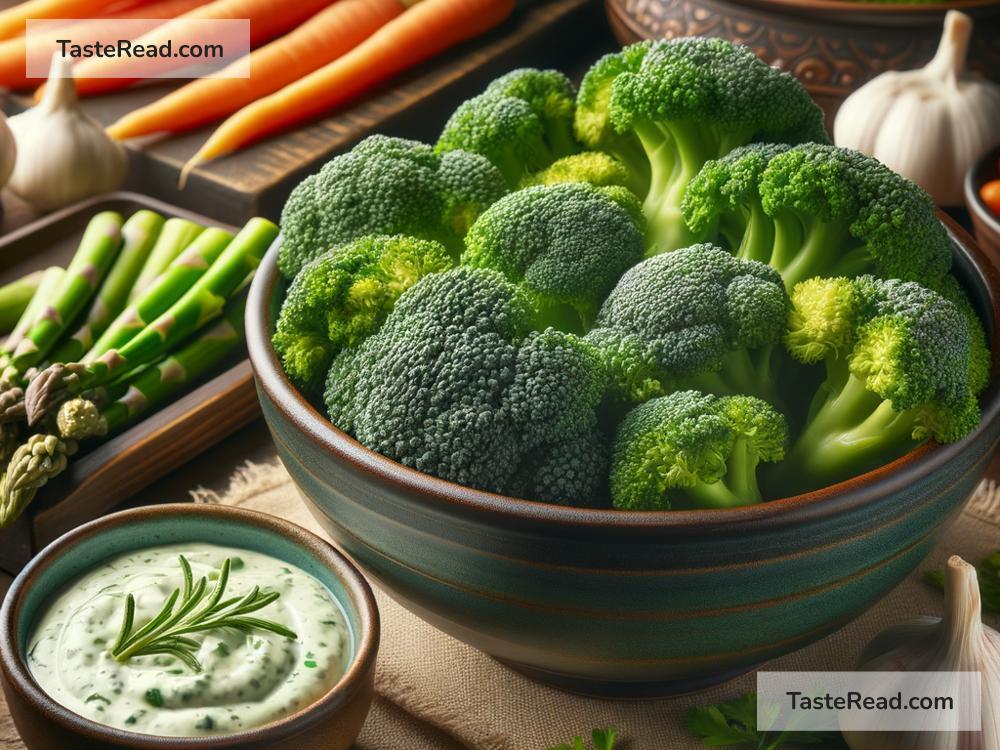The Truth About Broccoli: The Nutrient Powerhouse You Need in Your Life
There’s a vegetable that has been a dinner plate regular for years: broccoli. Some people love it, while others push it to the side of their plate. But here’s the honest truth—broccoli is one of the most nutrient-dense foods you can eat. It’s not just a crunchy green vegetable; it’s essentially a powerhouse packed with health benefits.
In this blog, we’ll break down the truth about broccoli, its incredible nutrient density, and why it should find a place in your meals. And we promise to keep it simple, so everyone can understand why this humble veggie deserves respect.
What Is Nutrient Density?
Before diving deep into broccoli, let’s take a quick look at nutrient density. Think of nutrient-dense foods as the superheroes of the food world. They’re low in calories but high in vitamins, minerals, and other good stuff your body needs. Unlike junk food, which might give you quick energy but no real nutritional benefit, nutrient-dense foods fill you with long-lasting energy and support your overall health.
Broccoli happens to be one of the MVPs (most valuable players) when it comes to nutrient density. It’s low in calories and high in everything your body loves, making it a perfect choice whether you’re trying to eat healthier, lose weight, or simply feel better.
Why Is Broccoli So Healthy?
Let’s take a closer look at what broccoli brings to the table. This green vegetable is packed with essential nutrients, antioxidants, fiber, and even a small amount of protein.
1. Vitamins and Minerals Galore
Broccoli is bursting with vitamins and minerals your body needs to stay healthy. Here are some of its key nutrients:
– Vitamin C: Great for your immune system and your skin. Fun fact: Broccoli contains more Vitamin C than oranges per serving!
– Vitamin K: This vitamin helps your blood clot properly and supports bone health.
– Vitamin A: Good for your eyes and immune system.
– Folate: Essential for cell growth and especially important for pregnant women.
– Potassium: Helps keep your blood pressure in check.
2. Rich in Antioxidants
Antioxidants are like protectors for your body. They fight against free radicals, which are harmful molecules that can cause damage to your cells. Broccoli contains antioxidants like sulforaphane, which is believed to have anti-cancer properties. In simpler terms, eating broccoli can help keep your body more protected from dangerous invaders.
3. Fiber for a Healthy Gut
Broccoli is a great source of dietary fiber, which is important for keeping your digestive system happy. Fiber helps prevent constipation and can even lower cholesterol levels. Eating broccoli regularly can help you feel full longer, which is great if you’re trying to avoid overeating.
4. Low in Calories, High in Nutrients
Broccoli is one of those rare foods that give you a lot without taking much in return. A cup of broccoli contains only around 55 calories—but it’s loaded with vitamins, minerals, and fiber. So, while it doesn’t add to your calorie count, it adds tons of nutritional value.
5. Plant-Based Protein
While broccoli isn’t high in protein like meat or eggs, it still contains a surprising amount for a vegetable. Protein is essential for muscle repair and overall body function. Adding broccoli to your meals can provide a small protein boost, especially for vegetarians and vegans.
Broccoli and Disease Prevention
Many studies suggest that broccoli can help protect your body from various diseases and illnesses. Thanks to its nutrient density and abundance of antioxidants, eating broccoli regularly may:
– Reduce the risk of cancer: Some compounds in broccoli, particularly sulforaphane, might help slow damage to cells and reduce the risk of certain types of cancer.
– Support heart health: The fiber, antioxidants, and potassium in broccoli work together to keep your heart strong and lower the risk of heart disease.
– Improve bone health: Broccoli’s Vitamin K and calcium content are good for maintaining sturdy, healthy bones.
How to Include Broccoli in Your Diet
If you’re not a fan of plain steamed broccoli, don’t worry—there are plenty of delicious ways to enjoy this nutrient-packed vegetable:
– Add it to a stir-fry: Broccoli pairs perfectly with garlic, ginger, and soy sauce.
– Toss it into soups: Broccoli can be blended into creamy soups for a burst of nutrients.
– Roast it: Roasting broccoli with olive oil, salt, and pepper brings out its natural sweetness.
– Blend it into smoothies: Add some frozen broccoli florets to your green smoothie for an extra health boost.
– Make salads: Raw broccoli can be chopped and added to salads for a crunchy texture.
The Final Verdict on Broccoli
Broccoli isn’t just a vegetable—it’s a nutrient-packed powerhouse that can support your health in many ways. From boosting your immune system to helping your heart, bones, and gut stay strong, broccoli deserves more love at mealtime. Plus, it’s affordable, easy to cook, and versatile enough to fit into any dish.
So, the next time you see broccoli on your plate, don’t push it aside. Embrace the truth about this amazing veggie and enjoy its incredible health benefits. It might just turn out to be one of your favorite foods. After all, your body will definitely thank you!


